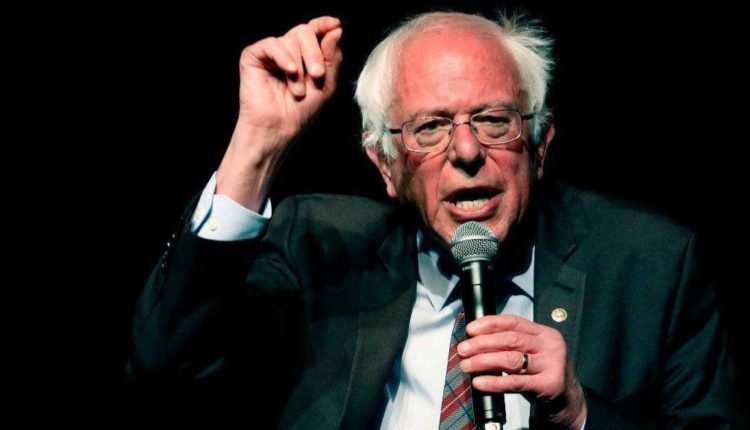
‘Follow the money’: Sanders explains why Medicare for All stalled in congress
U.S. Sen. Bernie Sanders took to the Senate floor Tuesday to call out the for-profit healthcare industry for thwarting progress toward the Medicare for All-type system that people in other developed nations enjoy.
“While it is not discussed much in the corporate media or here in the halls of Congress, we have today in the United States the most inefficient, bureaucratic, and expensive healthcare system in the world,” Sanders (I-Vt.)—who in May introduced the Medicare for All Act of 2022—said during his nearly 27-minute speech.
“That’s not just what I believe,” the democratic socialist added. “That’s what the American people know to be true because of their lived experience with the healthcare system.”
Pointing to polling that shows only 12% of Americans “believe that healthcare in general is handled very well or extremely well in the United States” and that two-thirds of Americans agree that it’s the government’s responsibility to ensure everyone has health coverage, Sanders said that “the American people increasingly understand, as I do, that healthcare is a human right, not a privilege, and must end the international embarrassment of the United States being the only major country on Earth that does not guarantee healthcare to all of its citizens.”
“Now, if Medicare for All was so great, you might ask, why hasn’t it been enacted by now?” the two-time Democratic presidential candidate asked. “Why hasn’t the United States joined every major country on Earth in guaranteeing healthcare for all?”
“Well, the answer is pretty simple: Follow the money,” he said. “Since 1998, in our corrupt political system, the private healthcare sector has spent more than $10.6 billion on lobbying and over the last 30 years it has spent more than $1.7 billion on campaign contributions to maintain the status quo.”
That status quo is killing people. Common Dreams reported in June that over 300,000 of the more than 1 million U.S. Covid-19 deaths could have been prevented under a Medicare for All-type national healthcare system, according to one study.
In addition to saving an estimated 68,000 lives annually, Medicare for All would also reduce U.S. healthcare spending by approximately $450 billion per year, according to a 2020 study by Yale epidemiologists.
Also in June, Sanders debated one of his Republican Senate colleagues, Lindsey Graham of South Carolina—a staunch opponent of Medicare for All.
“Does Lindsey have a concern that we are the only major country on Earth not to guarantee healthcare to all people? That some 60,000 people a year die because they don’t get to a doctor on time?” he asked.
“Does Lindsey care that we have the highest prices in the world for prescription drugs,” Sanders added, “and that the pharmaceutical industry right now has 1,500 paid lobbyists in Washington, D.C. to make sure that in some cases we pay 10 times more for the medicine that we need?”

